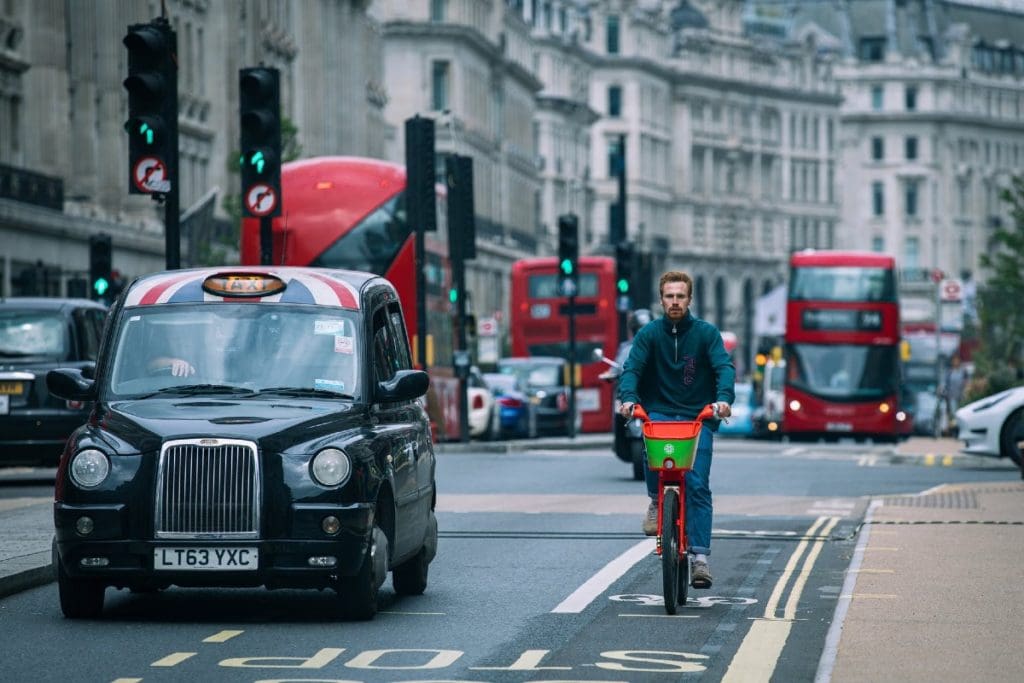UK E-Bike Uptake Could Skyrocket With Further Incentives

Leeds, UK
The economic and quality-of-life benefits of the UK’s e-bike boom could be more than quadrupled through a series of initiatives to further encourage cycling, according to a recent study for a peak UK transport group.
The Fully Charged study, commissioned by the Urban Transport Group (UTG) and prepared by consultancy Steer, is the first to quantify the benefits e-bikes could bring if transport authorities further implemented initiatives such as financial incentives, promotional campaigns, improved infrastructure and shared e-bike schemes.
Using the UK Government’s own targets for increased bike use, Fully Charged draws upon evidence from existing initiatives to quantify how much the benefits could be accelerated in the seven core UTG city regions: London, Greater Manchester, Liverpool City Region, South Yorkshire, Tyne and Wear, West Midlands and West Yorkshire.
It says the number of additional cycle trips could be increased from 250 million, under the Government’s targets, to almost 1.2 billion.
The study estimates 646 million of these trips would replace car and taxi journeys, compared to the government target of 103 million. That could effectively remove 2.6 billion car and taxi kilometres annually across the city regions (government target 416 million).
That would equate to a saving of 390,000 tonnes of CO2 emissions a year under the accelerated program – assuming the e-bike batteries are charged using renewable energy. That figure is 62,000 tonnes for the government target.
Similarly, an accelerated uptake of e-bike usage could generate around £1.5 billion (A$2.6 billion) annually in monetary benefits for the city regions, of which £800 million (A$1.5 billion) arises from mode shift benefits and £700 million (A$1.3 billion) from health benefits.
Under the Government’s targets, set out in its Gear Change vision for 2030, e-bike usage generates around £280 million (A$527 million) annually in monetary benefits for the city regions.
The Urban Transport Group represents the UK’s largest urban transport authorities and released Fully Charged last month to identify the potential to increasing e-bike uptake in the UK and “support urban transport authorities to consider practical approaches to increasing e-bike uptake”.
Fully Charged draws upon emerging evidence to suggest six areas where local transport authorities can play a role in increasing uptake of e-bikes:
Financial incentives such as grant schemes and tax incentives, with a particular focus on under-represented groups
Changing public attitudes and increasing awareness – through ‘bicycle libraries’, loan schemes, increased use by the public sector, better marketing and promotion, including joint initiatives with business and the health sector
Infrastructure improvements – such as better cycle routes and mobility hubs, particularly targeting suburbs and areas poorly served by public transport, low-traffic neighbourhoods, charging networks, training for designers and engineers, micro consolidation hubs using e-cargo bikes.
Security, safety and convenience – providing secure cycle storage near homes and key destinations, e-bike maintenance services, cycle training.
Research and monitoring – to test and evaluate different approaches to incentivise the use of e-bikes.
Shared e-bikes – with local and transport authorities securing funding to introduce e-bikes into bike-share schemes, collaboration to provide targetted discounts, working with housing developers to incorporate e-bike share schemes.
The study also found e-cargo bikes have the potential to revolutionise first and last-mile travel and logistics. Evidence indicated they could replace up to a quarter of commercial deliveries in cities, 50% of commercial service and maintenance trips, and 77% of private trips, such as shopping and child transport.
“e-Cargo bikes have great potential to replace vans in urban or compact and congested areas. Before the COVID-19 pandemic, vans were the fastest growing vehicle group in the UK, and a considerable contributor to urban congestion and pollution,” it says.
The report highlights the experience of the PRO-E-BIKE project in Europe, to increase awareness and promote e-cargo bikes for the delivery of goods.
The project provided several public authorities and private companies across Europe with subsidies to test e-bikes and e-cargo bikes. Four out of five vehicles tested continued to be used after the trial period, with some of the participating companies purchasing more e-bikes and e-cargo bikes.
Four vehicles tested by the Croatian Post resulted in a fleet of 180 e-bikes purchased and deployed across the country.
Italy’s second biggest delivery company, GLS, moved its logistics centre, replaced six delivery vans with nine e-cargo bikes, hired more people and optimised its delivery system to best fit e-cargo bikes. This increased the company’s number of deliveries, its efficiency and overall productivity, and brought cost savings.
The report says it is time for the UK to “join the e-bike revolution and enable more people to cycle more often”.
“We hope this report will provide transport authorities with the evidence and tools they need to fully charge their approach to e-bikes, as well as encourage government at national level to give this important mode its full support.”
